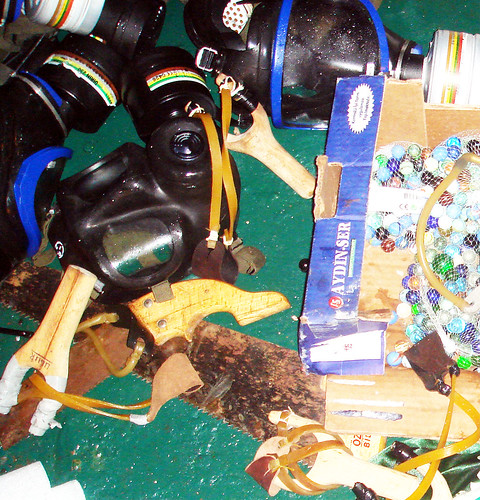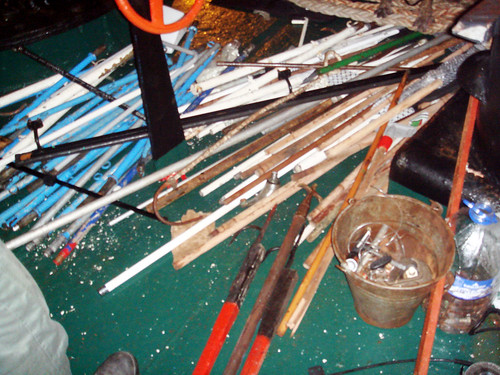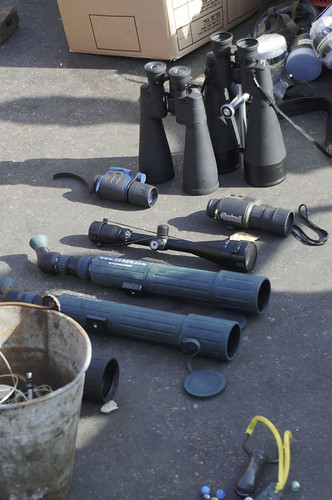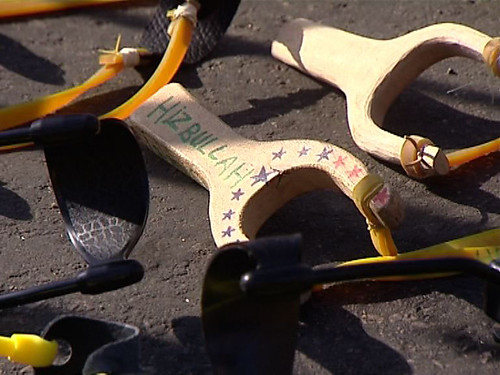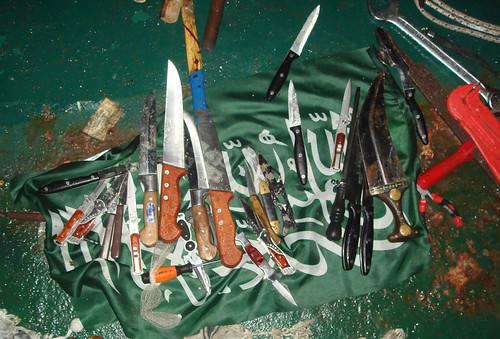Setelah berada 3 tahun di Israel kerana menjalani housemanship dibeberapa hospital d isana, ada beberapa perkara yang menarik dapat saya perhatikan untuk dijadikan tesis ini, iaitu "Mengapa Yahudi Bijak?"
Memang tidak dapat dinafikan ramai cendikiawan berbangsa Yahudi, dari segala bidang, Engineering, muzik, saintis dan yang paling hebat ialah bidang perniagaan, dimana ia memang paling tersohor. Hampir 70% perniagaan di dunia dikuasai oleh kaum Yahudi, dari kosmetik, pakaian, pemakanan, senjata, perhotelan, perfileman diHollywood dan sebagainya.
Ketika tahun kedua, akhir bulan December 1980 dan sedang saya menghitung hari untuk pulang ke California, saya terfikir apakah sebabnya kaum Yahudi begitu pintar? Kenapa tuhan memberi kelebihan kepada mereka? Apakah ini suatu kebetulan? Atau oleh manusia sendiri? Adakah bijak boleh dijana? Seperti kilang pengeluaran? Maka saya pon tergerak membuat tesis untuk Phd saya, disamping kebaikan untuk umat sejagat dan dapat hidup secara harmoni. Untuk pengetahuan anda tesis yang saya lakukan ini mengambil masa hampir lapan tahun, ini kerana untuk mengumpulkan data-data yang setepat mungkin. Antara data-data yang saya kumpulkan ialah pemakanan, adat resam, ugama, persiapan awal untuk melahirkan zuriat dan sebagainya dan data data tadi saya cuba bandingkan dengan bangsa dan kaum kaum lain.
Marilah kita mulakan dengan persiapan awal melahirkan zuriat. Di Israel, setelah mengetahui yang sang ibu sedang mengandung, pertama kali saya perhatikan ialah, sang ibu akan sering menyanyi dan bermain piano dan si ibu dan bapa akan membeli buku metamatik dan menyelesaikan masalah metamatik bersama suami, saya sungguh hairan kerana teman saya yang mengandung sering membawa buku metamatik dan bertanya kepada saya beberapa soalan yang beliau tak dapat menyelesaikanya, oleh kerana saya memang minat tentang metamatik, tentu saja dengan senang saya bantu beliau. Saya bertanya kepada beliau, adakah ini untuk anak kamu? Beliau menjawab, "ia, ini untuk anak saya yang masih didalam kandungan, saya sedang melatih otak beliau, semuga ia menjadi genius apabila dewasa kelak" Perkara ini membuat saya tertarik untuk mengikut perkembangan beliau seterusnya. Berbalik kepada metematik tadi, tanpa merasa jenoh beliau membuat latihan metamatik sehingga beliau melahirkan anak.
Seperkara lagi yang saya perhatikan ialah pemakanan beliau, sejak awal mengandung beliau gemar sekali memakan kacang badam dan korma bersama susu, dan untuk tengah hari makan utama beliau ialah roti dan ikan tanpa kepala bersama salad yang digaul dengan badam dan berbagai jenis kekacang. Menurut beliau daging ikan sungguh baik untuk perkembangan otak dan kepala ikan mengandungi kimia yang tidak baik yang dapat merosakkan pengembangan dan penumbuhan otak anak didalam kandungan. menurut beliau ini adalah adat orang orang yahudi ketika mengandung dan ianya menjadi semacam kewajipan untuk ibu ibu yang sedang mengandung mengambil pil minyak ikan.
Ketika saya diundang untuk makan malam bersama orang orang Yahudi, perkara pertama yang saya perhatikan ialah menu mereka.. Setiap undangan yg sama perhatikan ialah mereka gemar sekali memakan ikan (hanya isi atau fillet) dan biasanya daging tidak akan ada bersama dimeja jika ada ikan. Menurut mereka, campuran daging dan ikan tak elok dimakan bersama. Salad dan kacang adalah suatu kemestian, terutama badam.
Seperkara yang pelik ialah mereka akan memakan buah buahan dahulu sebelum memakan hidangan utama. Jangan terperanjat jika anda diundang kerumah Yahudi anda akan dihidangkan buah buahan dahulu. Menurut mereka, dengan memakan hidangan kabohidrat (nasi atau roti) dahulu kemudian buah buahan, ini akan menyebabkan kita merasa ngantuk dan lemah dan payah untuk memahami pelajaran disekolah.
Di Israel, merokok adalah taboo, apabila anda diundang makan dirumah Yahudi, jangan sekali kali merokok, dan tanpa malu mereka akan menyuruh anda keluar dari rumah mereka dam merokok diluar rumah mereka. Menurut saintis di Universiti Israel , siasatan menunjukkan nikotin dapat merosakkan sel utama pada otak manusia dan akan melekat pada genes, ini bermakna keturunan perokok bakal membawa generasi yg cacat otak ( bodoh atau lembab). Suatu penemuan yg dahsyat ditemui oleh saintis yg mendalami bidang genes dan DNA. Para perokok harap ambil perhatian. (Ironi nya, pemilik pengeluar rokok terbesar adalah ...... tekalah sendiri..!)
Perhatian saya selanjutnya ialah melawati tadika mereka, Pemakanan anak anak tadi cukup dikawal, makanan awal ialah buah buahan bersama kacang badam, diikuti dengan menelan pil minyak ikan (code oil lever) Didalam pengamatan saya, kanak Yahudi sungguh bijak dan rata rata mereka memahami 3 bahasa iaitu Hebrew, Arab dan Inggeris dan sejak dari awal lagi mereka telah dilatih bermain piano dan violin, ini adalah suatu kewajipan. Menurut mereka bermain muzik dan memahami nota notanya dapat meningkatkan lagi IQ kanak kanak dan sudah tentu bakal menjadikan budak itu bijak. Ini menurut saintis Yahudi, gegaran musik dapat stimulate (semacam senaman untuk otak) maka itu terdapat ramai sekali genius musik terdiri dari kaum Yahudi.
Seterusnya ke darjah 1 hingga 6, anak anak Yahudi akan diajar metamatik berkonsepkan perniagaan dan pelajaran sains amatlah diberi keutamaan. Di dalam perhatian peribadi saya, perbandingan dengan anak anak di California, ianya jauh berbeza tentang IQ dan boleh saya katakan 6 tahun kebelakang!!! Segala pelajaran akan dengan mudah di tangkap oleh anak Yahudi. Selain dari pelajaran tadi sukan juga menjadi kewajipan bagi mereka dan sukan yg diberi keutamaan ialah memanah, menembak dan berlari, menurut teman saya ini, memanah dan menembak dapat melatih otak memfokus sesuatu perkara disamping mempermudahkan persiapan untuk perhidmatan negara.
Selanjutnya pemerhatian saya menuju ke sekolah tinggi (menengah) disini murid murid ditekan dengan pelajaran mata sains dan mereka digalakkan mencipta produk, segala projek mereka walaupon kadangkala kelihatannya lucu dan mengarut, tetap diteliti dengan serius apatah lagi ianya berupa senjata, perubatan dan engineering, idea itu akan dibawa ke institut tinggi di Politeknik dan Universiti.
Satu lagi yang di beri keutamaan ialah fakulti perniagaan. Saya sungguh terperanjat melihat mereka begitu agresif dan seriusnya mereka tentang perniagaan. Di akhir tahun di universiti, para penuntut dibidang niaga dikehendaki melakukan projek dan mempraktikkanya dan anda hanya akan lulus jika kumpulan anda (10 pelajar setiap kumpulan) dapat keuntungan sebanyak $US1juta! Anda terperanjat? Itulah kenyataan, dengan rangkaian seluruh dunia dan ditaja sepenuhnya oleh syarikat milik Yahudi, maka tidak hairanlah mereka dapat menguasai ½ perniagaan didunia! Siapakah yg mencipta design Levis yg terkini? Ianya dicipta di Universiti Israel oleh fakulti bisnes dan fesyen.
Pernahkah anda melihat cara orang Yahudi melakukan ibadah mereka? Salah satu caranya ialah dengan menggoyangkan kepala mereka, menurut mereka ini dapat mengaktifkan otak mereka dan menambahkan oksijan dikepala, banyak ugama lain di Timur Tengah, seperti Islam juga ada menyuruh umatnya menunduk atau menggoyangkan kepala, ini guna dapat mensimulasikan otak kita supaya bertambah aktif. Lihat orang orang Jepun, mereka sering menunduk nundukkan kepala dan ianya sebagai adat. Ramai orang orang Jepun yg pandai? Adakah ianya sebagai kebetulan? Kegemaran mereka ialah sushi (ikan mentah). Adakah ini kebetulan? Fikirkanlah!
Berpusat di New York, Dewan perniagaan Yahudi bersedia membantu mereka yg berminat untuk melakukan bisnes (sudah tentu untuk Yahudi sahaja) jika mereka ada idea yg bernas, jawatan kuasa akan memberi pinjaman tanpa faedah dan pentadbir dari jawatan kuasa tadi akan bekerjasama dengan anda untuk memastikan yg perniagaan mereka menurut landasan yg betul. Maka itu lahirlah Starbuck, Dell compter, Cocacola, DKNY, Oracle, Perfileman di Hollywood, Levis, Dunkin Donut dan ada beratus kedai ternama dibawah naungan dewan perniagaan Yahudi di New York. Graduan Yahudi dari fakulti perubatan New York akan disarankan untuk mendaftar di persatuan ini dan digalakkan memulakan klinik mereka sendiri dengan bantuan wang tanpa faedah, barulah saya tahu mengapa hospital di New York dan California sentiasa kekurangan doktor pakar.
Kesimpulanya, pada teori saya, melahirkan anak dan keturunan yg bijak boleh dilaksanakan dan tentunya bukan semalaman, ianya memerlukan masa, beberapa generasi mungkin? Persiapan awal adalah ketika sang ibu mengandung, galakkanlah si ibu melakukan latihan metematik yg mudah tetapi konsisten disamping mendengar musik klasik. Seterusnya ubahlah cara pemakanan, makanlah makanan yg elok dan berhasiat yg baik untuk otak, menghayati musik sejak kecil adalah baik sekali untuk penumbuhan otak kanak kanak, dengan bermain piano dan violin sudah tentu dapat melatih anak anak mencerdaskan otak mereka demikian juga sukan yg memerlukan konsentrasi yg tinggi, seperti memanah, bola keranjang, dart dan menembak.
Merokok menjanjikan generasi yg moron (goblok/ bodoh) dan sudah tentu gens bodoh akan mengikut ke generasi si perokok. Lawatan saya ke Singapura pada tahun 2005 amat memeranjatkan sekali, disini perokok seperti dianak-tirikan dan begitu susah sekali untuk perokok dan anda tahu berapa harga sekotak rokok? US$ 7 !!! ini bersamaan perbelanjaan sehari untuk makan anda!! Saya puji sekali sikap pemerintah Singapura dan menakjubkan sekali!!! Dan seperti Israel ianya begitu taboo dan cara pentadbiran dan segi pembelajaran mereka hampir serupa dengan Israel , maka itu saya lihat banyak institusi pelajaran mereka bertaraf dunia walaupun hakikatnya negeri Singapura hanyalah sebuah pulau sebesar Manhattan !!
Anda mungkin musykil, benarkah merokok dapat melahirkan generasi goblok, saya telah menemui beberapa bukti menyokong teori ini. Lihat saja Indonesia, jika anda ke Jakarta, di mana saja anda berada, dari restoran, teater, kebun bunga hingga ke musium, hidung anda akan segera terbau asap rokok! Dan harga rokok? Cuma US$ .70 cents !!! dan hasilnya? Dengan penduduknya berjumlah jutaan orang berapa banyakkah universiti terdapat di sana? Hasil apakah yg dapat dibanggakan? Teknologi? Jauh sekali. Adakah mereka dapat berbahasa selain dari bahasa mereka sendiri? Mengapa mereka begitu sukar sekali menguasai bahasa Inggeris? Ditangga berapakah kedudukan mereka di pertandingan metematik sedunia? Adakah ini bukan akibat merokok? Anda fikirlah sendiri.
Di tesis saya ini, saya tidak akan menimbulkan soal ugama atau bangsa, adakah Yahudi itu zalim sehingga diusir dari semenjak zaman Firaun hingga ke Hitler, bagi saya itu isu politik dan survival, yg ingin saya ketengahkan ialah, mampukah kita dapat melahirkan generasi yg bijak seperti Yahudi? Jawapannya ialah mungkin dan tidak mustahil dan ianya memerlukan perubahan, dari segi pemakanan dan cara mendididik anak dan saya kira hanya memerlukan 3 generasi sahaja. Ini dapat saya lihat sendiri tentang cucu saya, ini setelah saya mengajar anak saya melalui program yg telah saya nyatakan di atas tadi, pada umur 9 tahun (cucu saya) dia dapat menulis esei sepanjang 5 mukasurat penuh. Eseinya hanyalah mengenai Mengapa saya gemarkan tomato!
Selamat sejahtera dan semuga kita dapat melahirkan manusia yg bijak dan bersifat mulia untuk kebaikan manusia sejagat tanpa mengenal batasan bangsa.
Dr. Stephen Carr Leon
Di alih bahasa oleh :
Adibah Mohd Noor
Matriculation Lecturer
Department of Sciences
UIA Matriculation Centre
PJ, Selangor.
>>>>>>>>>>>>>>>>>>>>>>>>>>>>>>>>>..
Fikrah:-
1) SEgala amalan yang dilakukan di atas adalah selaras dan selari dengan Sunnah RAsulullah SAW!!! Bukan ciptaan daripada YAhudi - ISrael!!!
2) bak kata Syed Mohd Abduh 100 tahun dahulu; "Saya nampak Islam, tapi, saya tak nampak Muslim" apabila beliau berkelana di bumi Eropah...
3) Jauh lagi kita ni....
Perjuangan dan PErubahan harus diteruskan.
Kalau tak kita, siapa?
Kalau tak sekarang, bila?

